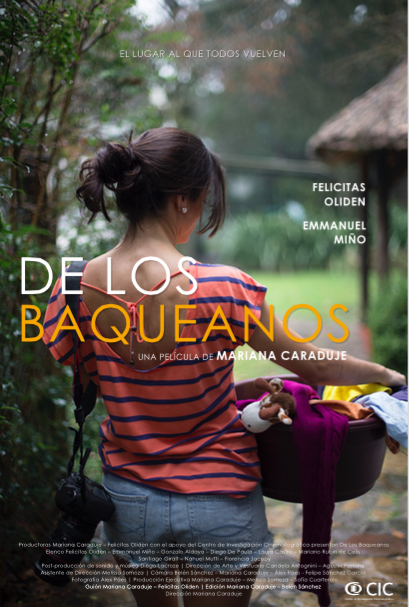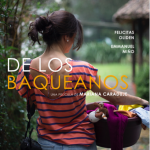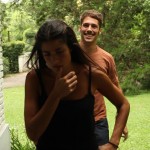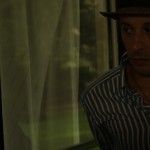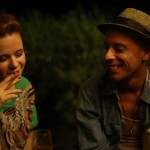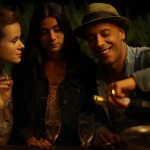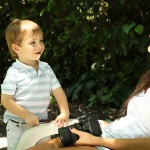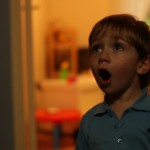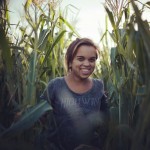The Locals
– Technical Info / Información Técnica:
(2018) / 01: 00: 04/ Full HD 1920×1080 / 25 FPS / PAL / COLOR / SOUND DOLBY 5.1 / Argentina / First Film, Feature Film, Woman Director, Drama, Family
– Logline:
El lugar al que todos vuelven.
The place we come back to.
– Short Synopsis / Sinopsis Corta:
MONA, fotógrafa consumida familiar y laboralmente, enfrenta un cambio en su rutina con la llegada de Teo, persona de su pasado que regresa tras vivir en el exterior.Gonzalo, niño cuya existencia Teo desconocía, hace que el descubrimiento sea más complejo de lo esperado. Siete días, una casa quinta en Buenos Aires y un vínculo que parecía perdido.
Mona, a young and talented photographer caught up in her family and job obligations, is forced to face a radical change in her routine with the unexpected arrival of Teo, a person of her past that comes back after a frustrating experience abroad. The presence of Gonzalo, a two-year-old child whose existence Teo completely ignored, makes the rediscovery between them more complex than they had imagined. A week of isolation in a country house in the outskirts of Buenos Aires presents a real test for a tie they had assumed far lost.
– Synopsis / Sinopsis:
Una cámara ingresa casi a escondidas a una casaquinta en las afueras de Buenos Aires y se va abriendo paso ante un frondoso y desprolijo jardín. Es domingo por la tarde y es verano. Un plateado cielo se filtra entre los distintos tonos de verde. La cámara continúa avanzando con inquietud y sutileza y se topa con Mona, una joven fotógrafa desbordada por su situación laboral y familiar. Mientras intenta, aún sin éxito, hacerse un lugar en el competitivo universo publicitario y ocuparse de los quehaceres domésticos de una casa que –sin quererlo- heredó, Mona recibe la inesperada visita de Teo, una importante persona de su pasado que regresa tras una frustrada experiencia en el exterior. El carácter enérgico, osado y desenvuelto del joven arrasa inmediatamente con la estructura cotidiana que Mona tanto se ha esmerado por alcanzar. Para ella, todo está perdido; para él, nada lo está. Ambos quieren demostrarlo.
A camera quietly enters a country-house in the outskirts of Buenos Aires and makes its way through a heavy, tangled garden. Its Sunday afternoon and its summer. A silvery sky is barely seen through the various layers of green. The camera moves forward, anxious yet discreetly, and bumps into Mona (27), a young photographer worn out by work and family obligations. While trying, so far unsuccessfully, to make a career out of publicity and take care of the house she inherited –not that she wanted to-, she receives the unexpected visit of Teo (30), an important person of her past that comes back from a frustrated experience living abroad. His bold, energetic and outgoing nature is enough to instantly destroy the daily structure that Mona has so hardly worked to achieve. As far as she is concerned, everything is lost; as far as he is, nothing is. They will both fight to prove it.
– Director´s Biography / Biografía del Director:
MARIANA CARADUJE
Mariana Caraduje estudió realización integral de cine y tv en el CIC, Buenos Aires, Argentina y completa su formación académica a través de diferentes seminarios entre los cuales se destacan: Producción audiovisual con Pablo Cullel y Promoción y prensa audiovisual con Cynthia Sabat. Actualmente, se encuentra finalizando la carrera de Publicidad en la Universidad Argentina de la Empresa. Respecto a su filmografía, en el 2011 filma “One Love”, su primer cortometraje como directora. En el 2012, asiste en la producción del piloto de televisión “Inmigrar”, producido por y realizado en el Centro de Investigación Cinematográfica. A mediados del 2012 conoce a Felicitas Oliden y escriben juntas lo que será su primer largometraje, “De los Baqueanos”, que sería filmado entre el 2012 y el 2013. Durante el 2014, colabora con el equipo de arte de la película “Primavera”, de Santiago Giralt, y entre el 2014 y el 2017 termina la post-producción de “De los Baqueanos”. En la actualidad, trabaja como realizadora audiovisual de forma independiente.
Mariana Caraduje was born on 9th October 1991, in Buenos Aires, Argentina. After graduating from high school she enters the Centro de Investigación Cinematográfica (CIC), to study Filmmaking and TV production. She complements her curricular studies by attending different workshops such as Cult Cinema, given by renowned film critique Gustavo Castagna, Stage Production by Alberto Lecchi, Acting by Gerardo Otero, Mass Media in Independent Filmmaking and Screenplay by Pablo Culell, among others.
In 2011 she directs her first short film, “One Love”. In2012 she produces “Hugo Bincha”, a short film by Hernán Fontana; she works as set manager in “Inmigrate”, TV pilot produced by the CIC; she co-writes “De los Baqueanos” (the locals), her first feature film, together with Felicitas Oliden. In 2014 she collaborates with the art design team of Santiago Giralt’s movie “Primavera” (Spring). Nowadays, she continues to work rigorously as an independent audiovisual producer and editor, and studies Advertising at the Universidad Argentina de la Empresa.
– Director’s Statement / Declaraciones del Director:
«De los Baqueanos» es el resultado de lo que un grupo de estudiantes de cine realizan atravesados por el deseo de querer contar una historia y la necesidad de intentarlo, volcando el conocimiento aprendido en el aula en una experiencia profesional real. Con Felicitas (protagonista, productora y co-guionista del film) nos conocimos en unas prácticas de la universidad. Ella estudiaba actuación, yo estudiaba cine, ambas estábamos en la mitad de nuestras carreras. Decidimos que ni bien tuviéramos el tiempo, escribiríamos un largometraje juntas. Menos de un mes después, en un café cerca de la facultad y utilizando sólo una tablet, empezamos a escribir. Ambas sabíamos que la historia se construiría a partir de los escasos recursos que teníamos y, sobre todo, de los temas que nos interesaban en ese momento: las nuevas formas de familia, los vínculos entre las personas, los viajes, y la vida lejos y cerca de la ciudad. Para ese entonces, el director Santiago Giralt, había venido a presentar su película “Antes del Estreno” a nuestra facultad. Después de ver el film y oír mucho sobre su estructura y la forma en la que había sido filmado, sentí que había encontrado la prueba de que se podía filmar de otra manera. Lejos estaba yo de poder replicarlo, pero supe que ese era el camino que debía tomar De Los Baqueanos. Armamos una estructura de plan de rodaje de pocos días, donde cada escena de la película era un plano secuencia (que finalmente después re-editamos) y un concepto técnico y narrativo que se sostenía en la idea de una cámara metiéndose en el hogar de los personajes durante una semana. Para mí era primordial que toda la puesta en escena, le permitiera al espectador sentir que estaba entrando en la intimidad de esa familia y que de la misma manera que entraba, podía salir. En cuanto a lo demás, el elenco se conformó por actores amigos y el equipo técnico, en su gran mayoría, eran compañeros de clase. Para diciembre, ya teníamos la locación, el guión, la fecha de rodaje, y el apoyo del CIC confirmado. No habían pasado ni seis meses de la idea inicial, y el rodaje ya era un hecho. Luego de eso, estuvimos cuatro años editando hasta llegar a la versión final y recién en el 2017 pudimos hacer la post-producción de sonido y la corrección de color. El proceso fue largo, intenso, emocionante, complejo y frustrante. Es decir: de muchísimo aprendizaje. Cada parte del proceso nos tomó más tiempo del que imaginábamos, y hasta tal vez, más recursos de los que teníamos. Tanto es así que para el momento en el que la terminamos, no sólo habíamos concluido nuestros estudios, sino que nuestras vidas habían tomado nuevos rumbos también. En lo personal, la estudiante de cine que con 21 años tenía su primer largometraje bajo el brazo hoy tiene 26, una nueva carrera, nuevos rumbos y un largometraje terminado. Muy simple, chiquito, pero que habla, ni más ni menos, que de la vida real. De los vínculos que tejemos, perdemos y recuperamos. «Baqueano» es aquel que se sabe local de un lugar y que intenta transmitir un poco de su hogar a los demás. Quizás, lo más fuerte que hoy me habita como directora, co-productora y co-guionista de esta película es entender que la única riqueza que guardamos todos es la experiencia. Y a ella, toda mi gratitud.
«The locals» is the result of what a group of film students performs crossed by the desire to tell a story and the need to try it, turning the knowledge learned in the classroom into a real professional experience. With Felicitas (lead character, co-producer, and co-scriptwriter of the film) we met in an practice at the university. She studied acting, I studied film, we were both in the middle of our careers. We decided that as soon as we had the time, we would write a feature film together. Less than a month later, in a cafe near the school and using only a tablet, we started writing. We both knew that history would be built from the scarce resources we had and, above all, from the topics that interested us at that time: new forms of family, the links between people, travel, and life far away and near the city. By then, the director Santiago Giralt, had come to present his film «Before the opening night» to our faculty. After watching the film and hearing a lot about its structure and the way it had been filmed, I felt that I had found proof that it could be filmed differently. I was far from being able to replicate it, but I knew that this was the path that “The locals” should take. We created a shooting plan structure of a few days, where each scene of the film was a sequence shot (which we finally re-edited afterward) and a technical and narrative concept that was based on the idea of a camera getting into the home of the characters during one week. For me, it was essential that all the staging, allow the viewer to feel that he was entering the intimacy of that family and that the same way he entered, he could leave. One of the clearest points is the soundtrack. About the rest, the cast was made up of friendly actors and the technical team, the vast majority, were classmates. By December, we already had the location, the script, the filming date, and CIC’s support confirmed. Not even six months had passed since the initial idea, and the shooting was already a fact. After that, we spent four years editing until we reached the final version and it was not until 2017 that we made the sound post-production and the color correction. The process was long, intense, exciting, complex and frustrating. That is to say: of a lot of learning. Every part of the process took us more time than we imagined, and maybe even more resources than we had. So much that by the time we finished it, not only had we finished our studies, but our lives had taken new directions as well. Personally, the film student who at 21 years old had her first feature film under her arm, today has 26, a new career, new directions and a finished film. Very simple, small, but that speaks, neither more nor less than real life. From the links we weave, lose and recover. «Local» is someone who knows he is local to a place and tries to transmit a bit of his home to others. Perhaps, the strongest thing that today inhabits me as director, co-producer, and co-writer of this film is to understand that the only wealth that we all keep is an experience. And to it, all my gratitude.
– Overview / Ficha técnica:
Script / Guión: Mariana Caraduje
Producer / Producción: María Felicitas Oliden Duri/ Mariana Caraduje
Executive Productor / Productor Ejecutivo: Maria Felicitas Oliden Duri
Director / Director: Mariana Caraduje
Director of Photography and Camera / Dirección de Fotografía y Cámara: Alex Páes
Camera/Cámara: Belén Sánchez- Mariana Caraduje- Alex Páes- Felipe Sánchez García
Film Editor / Edición: Diego Lacroze
Asistente de Dirección:
Director de sonido: Diego Lacroze
Sonido directo: Belén Sánchez- Sebastián Cerezo- Micaela Soquiransky
Mezcla de sonido: Estudio Taiquén- Pablo Isola
– Festivals, Awards and Nominations / Festivales, Premios y Nominaciones:
7 Festival de Cine Leonardo Favio; 08/2018; Bolívar, Bs As. Argentina
– Links:
Trailer: https://vimeo.com/270564968/c135675333
– Contact / Contacto:
MARIANA CARADUJE
mariana.caraduje@gmail.com
MARÍA FELICITAS OLIDEN DURI
